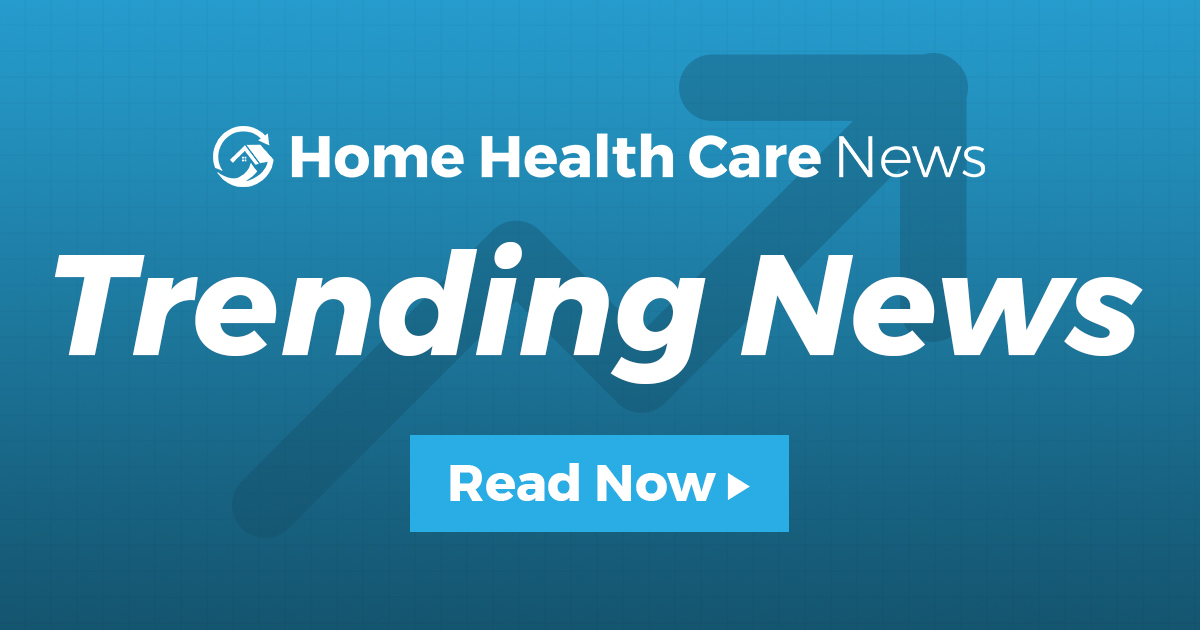
The dichotomy in the U.S. right now is evident, especially for those in health care: While vaccines and coinciding hope are being injected into Americans, the number of new COVID-19 cases each day continues to climb.
And while every home-based care provider and worker keeps reading that the vaccines — both Pfizer’s (NYSE: PFE) and now Moderna’s (Nasdaq: MRNA) — are here, they’re wondering where.
Vice President Mike Pence and his wife, Karen Pence, were both vaccinated on video Friday. Senate Majority Leader Mitch McConnell (R-Ky.) tweeted out a picture of himself post-vaccination as well. Hospital workers have danced on TikTok celebrating the Pfizer-BioNTech vaccine’s arrival at the Boston Medical Center.
But for the home-based care world, key information regarding the vaccines is still hard to find.
“We don’t know not only when but where,” David Totaro, the chairman of the Partnership for Medicaid Home-Based Care (PMHC), told The Philadelphia Inquirer last week. “We don’t even know how we’re going to be notified.”
Over the last week, most of the major home-based care trade organizations have released guidance for providers on how to handle vaccinations in the workplace.
Home-based care workers have been labeled 1a — or highest priority — to receive the vaccine in most states.
The National Association of Home Care & Hospice (NAHC), for instance, is telling providers to “encourage all home care and hospice staff to receive a COVID-19 vaccination at the earliest possible time consistent with vaccine guidance.”
The national association suggests providing the support necessary to help workers gain access to the vaccine as soon as possible as well as access to comprehensive and fact-based information regarding immunization. It also reiterated the importance in following safe protocols throughout the pandemic in the meantime.
The Home Care Association of New York State released similar guidance, and the National Hospice and Palliative Care Organization (NHPCO) released a statement of its own.
“Hospice and palliative care professionals are on the front lines of health care delivery in this country. Not only are they serving the most vulnerable population with complex medical needs, but they are caring for people in their homes, interacting with family caregivers, and traveling throughout the communities they serve,” NHPCO President and CEO Edo Banach said. “For their own protection, the safety of those under their care, and the welfare of their families and communities, NHPCO encourages these dedicated professionals to receive the COVID-19 vaccine.”
Each state’s plan to roll out the vaccine is different, so organizations that work in multiple states will have to do their due diligence in each region to ensure that their workers have access to one of the two vaccines as soon as possible.
Still, the home-based care organizations stopped short of encouraging mandatory vaccinations for workers, despite their assurance that immunization will be safe and effective in stopping the spread of COVID-19.
“The next thing that we’re trying to address right now is whether or not vaccines should be mandatory among our staff,” Totaro said during Home Health Care News’ Capital+Strategy event earlier this month. “And that’s a very, very complex issue. We’re taking it very seriously.”
San Francisco-based law firm Littler Mendelson released a client alert to home-based care organizations this week regarding that issue.
For many reasons, Littler is urging providers to wait before taking a firm position on mandatory vaccinations for workers.
“Employers really cannot make vaccinations completely mandatory,” Angelo Spinola, a shareholder at Littler Mendelson, wrote. “They must always allow exceptions based on health and religious beliefs.”
Spinola urged home-based care clients to consider a handful of questions: Firstly, are there exclusions regarding who should receive the vaccination, from a medical perspective?; Will there be side effects to the vaccine that could hurt employees?; Are your employees reticent or or enthusiastic about the vaccine?; And how are others in the industry responding?
Those questions all suggest that providers should wait before making the call. In some states, health care workers are required by the government to receive flu shots, for instance. If the government could make vaccines mandatory, Spinola urges providers to let lamakers do it first.
Plus, there are other things to consider.
“Mandatory vaccinations may lead to potential workers’ compensation claims from employees who suffer an adverse reaction to a potential vaccine,” he wrote.
In any case, encouraging vaccination, but stopping short of mandating them, seems to be the resounding guidance right now from industry insiders.
"care" - Google News
December 20, 2020 at 10:18PM
https://ift.tt/3p8FA80
NAHC, NHPCO, Others Release Vaccine Guidance for In-Home Care Providers - Home Health Care News
"care" - Google News
https://ift.tt/2N6arSB
Shoes Man Tutorial
Pos News Update
Meme Update
Korean Entertainment News
Japan News Update
Bagikan Berita Ini














0 Response to "NAHC, NHPCO, Others Release Vaccine Guidance for In-Home Care Providers - Home Health Care News"
Post a Comment